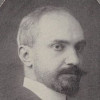“ Some things delight us when they are new, but later do so less, for the same reason; for at first the mind is in a state of stimulation and intensely active about them, as people are with respect to their vision when they look hard at a thing, but afterwards our activity is not of this kind, but has grown relaxed; for which reason the pleasure also is dulled. ”
Aristotle, Nicomachean Ethics (c. 334 BC - 330 BC). copy citation
| Author | Aristotle |
|---|---|
| Source | Nicomachean Ethics |
| Topic | stimulation pleasure |
| Date | c. 334 BC - 330 BC |
| Language | English |
| Reference | |
| Note | Translated by W. D. Ross |
| Weblink | http://classics.mit.edu/Aristotle/nicomachaen.mb.txt |
Context
“How, then, is it that no one is continuously pleased? Is it that we grow weary? Certainly all human beings are incapable of continuous activity. Therefore pleasure also is not continuous; for it accompanies activity. Some things delight us when they are new, but later do so less, for the same reason; for at first the mind is in a state of stimulation and intensely active about them, as people are with respect to their vision when they look hard at a thing, but afterwards our activity is not of this kind, but has grown relaxed; for which reason the pleasure also is dulled.
One might think that all men desire pleasure because they all aim at life; life is an activity, and each man is active about those things and with those faculties that he loves most; e.g. the musician is active with his hearing in reference to tunes, the student with his mind in reference to theoretical questions, and so on in each case;”
source



